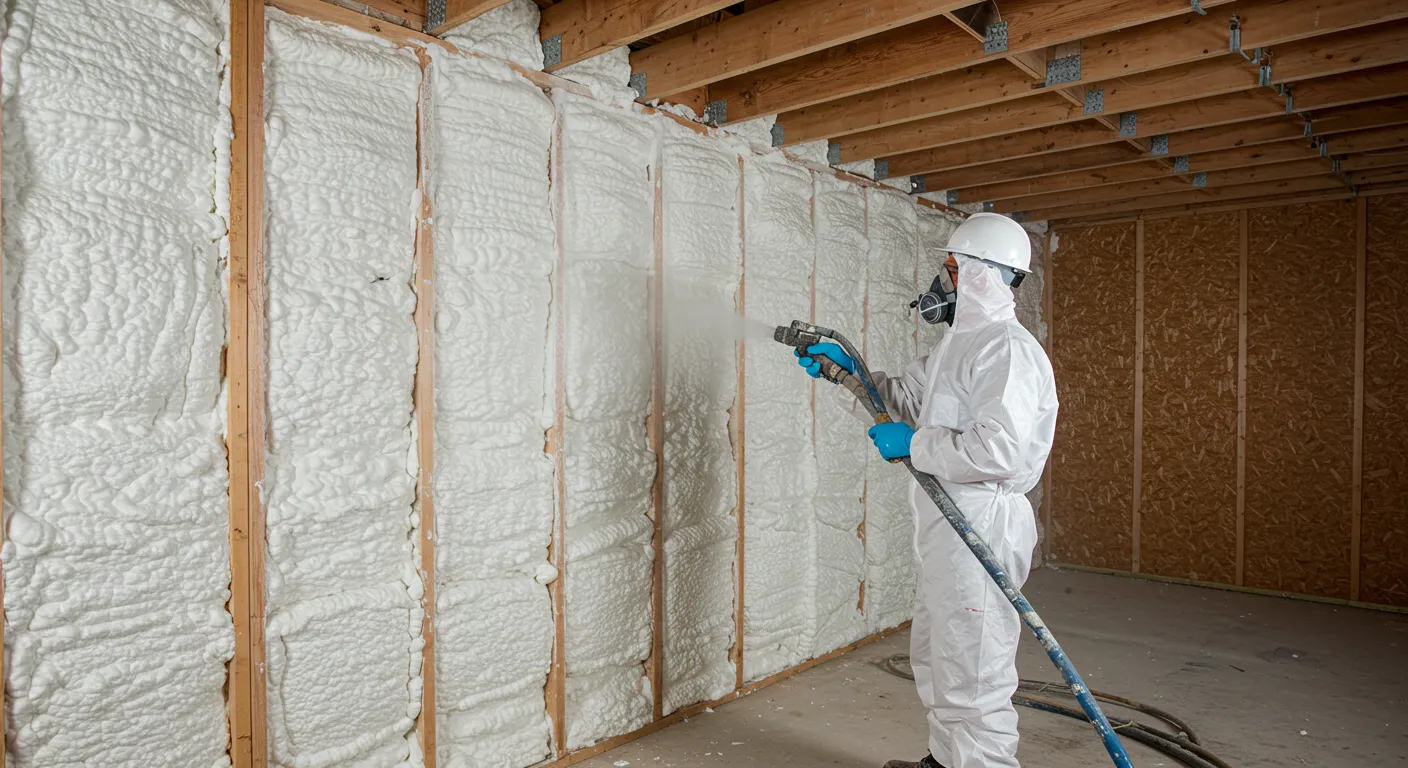
Spray foam insulation is a popular choice for homeowners and business owners in Seattle, WA, due to its energy efficiency and long-term benefits. However, one of the most common questions asked is: How much does spray foam insulation cost per square foot? The cost varies based on several factors, including the type of spray foam, the area being insulated, and the overall project scope. This article provides a detailed breakdown of the pricing, benefits, and considerations for spray foam insulation.
Spray foam insulation comes in two primary types: open-cell and closed-cell. Each has distinct characteristics that influence the price per square foot.
| Type | Cost per Square Foot | R-Value per Inch | Key Benefits |
| Open-Cell | $0.50 – $1.50 | R-3.5 to R-4.0 | Affordable, flexible, soundproofing |
| Closed-Cell | $1.00 – $2.50 | R-6.0 to R-7.0 | High insulation value, moisture resistance, durability |
The cost per square foot decreases with larger projects. Small-scale applications like sealing gaps may cost more per square foot than insulating an entire attic or crawl space.
The required R-value influences how many inches of spray foam are needed, impacting the cost. Closed-cell foam typically requires fewer inches to achieve the same insulation level as open-cell foam.
Seattle has higher labor costs than the national average. Professional installation typically ranges from $1.50 to $3.00 per square foot, depending on project complexity and accessibility.
Difficult-to-reach areas, such as high ceilings or tight crawl spaces, may increase labor costs. Urban areas like downtown Seattle may also have higher contractor fees compared to suburban locations.
If existing insulation needs removal, expect additional costs of $1.00 to $2.00 per square foot, depending on the material and disposal fees.
Attics are a prime area for spray foam insulation, preventing heat loss and reducing energy bills.
Walls require precise application, especially for existing structures where spray foam is injected.
Crawl spaces in Seattle homes are prone to moisture issues. Closed-cell spray foam is often recommended for this area.
Garage insulation helps regulate temperature and prevent heat loss.
| Insulation Type | Cost per Square Foot | R-Value per Inch | Lifespan |
| Fiberglass | $0.40 – $1.00 | R-2.9 to R-3.8 | 10-20 years |
| Cellulose | $0.50 – $1.80 | R-3.2 to R-3.8 | 20-30 years |
| Spray Foam | $0.50 – $2.50 | R-3.5 to R-7.0 | 30+ years |
Spray foam has a higher initial cost but offers superior durability and energy efficiency, making it a worthwhile investment.
While spray foam insulation costs more upfront, it leads to significant energy savings over time.
Spray foam insulation is a cost-effective and energy-efficient solution for Seattle homeowners, offering long-term savings, moisture control, and superior thermal performance. Though the upfront cost is higher than traditional insulation methods, the benefits far outweigh the initial investment.
For those considering spray foam insulation in Seattle, WA, working with a professional installer ensures the best results. Contact Cascadia Spray Foam of Seattle today to get a customized quote and expert guidance on your insulation needs.
For full-home insulation, costs range from $5,000 to $15,000, depending on foam type, thickness, and labor.
Spray foam insulation can last 30 years or more, outperforming fiberglass and cellulose in longevity.
It is generally recommended to remove old insulation before applying spray foam for optimal performance.
Yes, closed-cell spray foam resists moisture, reducing the likelihood of mold growth in damp areas like basements and crawl spaces.
Many modern spray foams are low in VOCs and have eco-friendly formulations, reducing environmental impact.
DIY kits are available but require expertise. Professional installation ensures proper application and safety compliance.
Seattle’s wet climate makes closed-cell spray foam an excellent choice for moisture control and energy efficiency.
Some energy efficiency rebates and tax credits may be available. Homeowners should check local programs for eligibility.
Once fully cured (24 hours), spray foam can be painted with compatible coatings.
While spray foam is fire-resistant, it should always be covered with an appropriate thermal barrier.